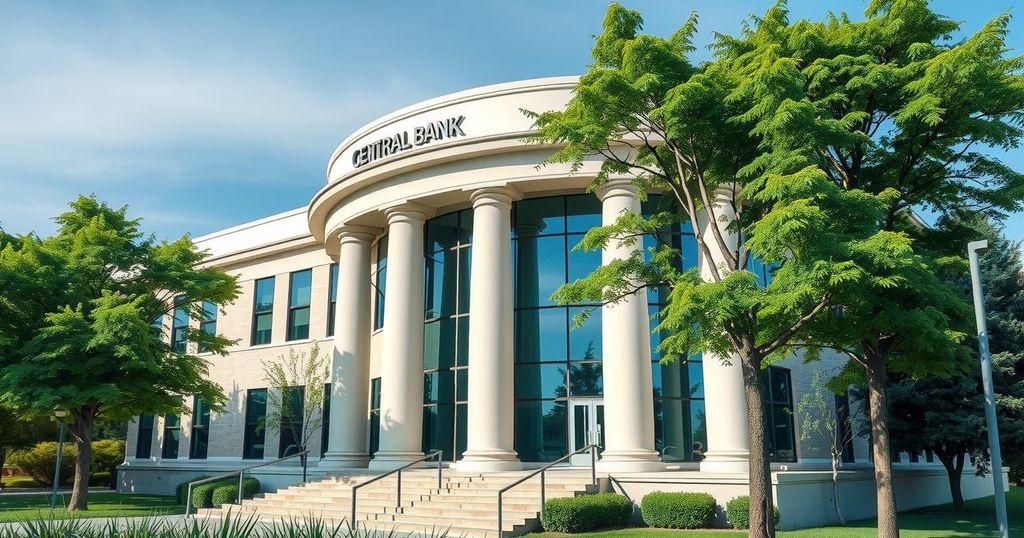U.S. Intervenes in Lebanon’s Selection of Central Bank Governor

The United States is actively involved in selecting Lebanon’s new Central Bank Governor, aiming to combat corruption and limit Hezbollah’s financial influence amidst Lebanon’s prolonged economic crisis. The U.S. is reviewing candidates and emphasizes the need for reforms in the banking sector as essential for future financial aid and support.
The United States plans to intervene in the selection of Lebanon’s new Central Bank Governor, reflecting its commitment to addressing corruption and hindering Hezbollah’s financial operations within the Lebanese banking system. This involvement occurs amid Lebanon’s ongoing financial crisis that has persisted for over five years, leading to profound economic challenges.
Washington’s engagement signifies its unusual role in Lebanese politics, particularly after Hezbollah’s influence in the Lebanese government has waned following recent Israeli military actions. In this evolving political landscape, U.S.-backed President Joseph Aoun and his government are expected to appoint a new Central Bank Governor to replace the interim governor currently in place since July 2023.
Discussions regarding candidates are progressing, with U.S. officials reviewing several profiles and holding meetings with potential appointees both in Washington and Beirut. In these meetings, U.S. representatives have focused on candidates’ strategies to combat “terrorism financing” and their willingness to challenge Hezbollah’s operations. Although officials from the U.S. government, the State Department, and the Lebanese Prime Minister’s office have refrained from commenting, there is an emphasis placed on selecting a qualified individual for this critical role.
Key potential candidates for the governorship include former minister Camille Abu Suleiman, investment executive Firas Abi Nassif, Jihad Azour from the International Monetary Fund, as well as asset management professionals Philippe Jibran and Karim Sweid. The incoming governor will be pivotal in initiating the economic reforms crucial for stabilizing Lebanon’s economy, as promised by President Aoun and Prime Minister Nawaf Salam.
The new administration aims to revive negotiations with the International Monetary Fund for a financial aid program, contingent on implementing necessary economic reforms. Additionally, international support linked to Lebanon’s reconstruction is conditional upon these reforms due to the extensive damage caused by previous conflicts.
The successor to the outgoing Central Bank Governor, Wassim Mansouri, will inherit a position previously held by Riad Salameh, whose leadership ended amidst controversy and sanctions related to corruption. Salameh’s tenure, once endorsed by the U.S., was marred by Lebanon’s financial collapse and subsequent legal challenges in Lebanon and internationally, thus highlighting the critical nature of the upcoming appointment amidst ongoing economic turmoil.
In summary, the U.S. intervention in Lebanon’s selection of a new Central Bank Governor underscores the urgent need to address corruption and financial malpractice within the country’s banking system. The soon-to-be-appointed governor holds significant responsibility in steering economic reforms essential for Lebanon’s recovery. This development occurs in the context of the nation’s prolonged financial crisis that necessitates immediate and effective strategies to mitigate the adverse effects of previous governance failures.
Original Source: www.jordannews.jo








